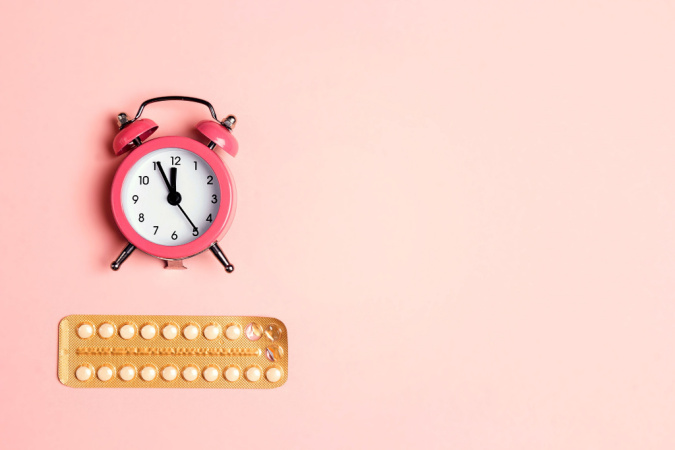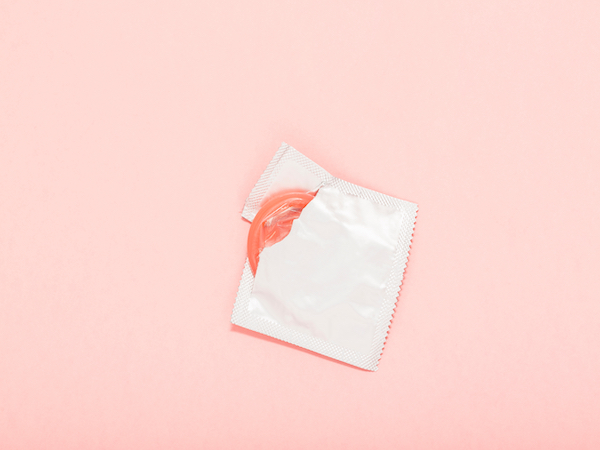Birth control pills are a popular form of contraception for good reason: they’re easy to take, have been safely used for decades, and are highly effective when taken correctly. But what if your doctor prescribes you an antibiotic while you’re on the pill?
Birth Control 101: Will Antibiotics Interact with Your Birth Control Pill?
Birth control pills are a popular form of contraception because they’re easy to take, have been safely used for decades, and are highly effective when taken correctly. But what if your doctor prescribes an antibiotic while you’re on the pill? Will that make your hormonal contraceptive less effective?
We’ll dig into the common question of how antibiotics interfere with birth control so you can make the right choice for yourself the next time you must take antibiotics and birth control pills simultaneously.

Get birth control delivered to your door
Fast online assessment with a Canadian nurse practitioner. Choose your method, get your prescription, never run out.
How do birth control pills work?
Birth control pills typically contain two hormones, estrogen and progestin. These hormones prevent pregnancy by stopping ovulation from occurring, thickening the cervical mucus making it less likely that sperm can enter the uterus, and thinning the uterine lining so that even if an egg is successfully fertilized, it’s less likely to attach successfully.
This form of birth control works by maintaining consistent hormone levels, preventing the monthly spike in estrogen that triggers the release of an egg.
Do antibiotics affect birth control?
There is a common misconception that taking any antibiotics and birth control pills simultaneously will prevent the pill from working and encourage using a barrier birth control method such as condoms during the course of antibiotics and for a period after.
While you probably don’t have to worry about this interaction with most antibiotics, there are certain types used to treat tuberculosis and other infections that can make the pill less effective. However, other antibiotics are much more commonly prescribed, so it’s unlikely that your course of antibiotics will interfere with your oral contraceptive.
If you’re concerned about a specific kind of antibiotic you are prescribed making your birth control less effective, it’s best to discuss it with a healthcare practitioner.
Can I take antibiotics with birth control?
Since most antibiotics don’t interact with hormonal contraception, they can safely be taken together without impacting the effectiveness of either drug. If your healthcare practitioner is prescribing a course of antibiotics. Make sure you let them know about any birth control you’re taking so they provide personalized advice.
Are there any side effects of taking birth control and antibiotics?
Since most antibiotics and birth control pills don’t interact, there isn’t data demonstrating side effects unique to taking them together.
On their own, birth control pills have some potential side effects that may be more likely if the antibiotic you’re taking has similar potential side effects. These include:
- headaches or dizziness
- a change in your normal appetite
- diarrhea
- nausea or vomiting
Can antibiotics cause spotting?
Another common side effect of birth control pills is breakthrough bleeding, also known as spotting. Some bleeding between periods is pretty standard, and hormonal birth control can increase your likelihood of experiencing it.
One of the causes of spotting can be missing a pill or taking it at irregular intervals. When you start your course of antibiotics, ensure you keep taking your contraceptive simultaneously to reduce the likelihood of breakthrough bleeding.
Breakthrough bleeding is also more common in the first few months of starting the pill or switching to a different pill. If you experience spotting while taking antibiotics and you’re new to the pill, or you recently switched brands, there’s a good chance the bleeding is just a common side effect of birth control.
How do I correctly take birth control pills?
Birth control pills are a popular contraceptive option for many women. They typically come in 21-packs or 28-packs, with seven sugar pills included making it easier to stay in the habit of taking your contraceptive on the seven “off” days.
Some brands can be taken continuously for up to 91 days, so you only have to experience a period of four times a year. Birth control pills effectively prevent pregnancy and offer other benefits like lighter periods and reduced PMS symptoms.
Most birth control pills contain synthetic forms of the hormones progesterone and estrogen. These hormones prevent pregnancy by thickening the mucus around the cervix, making it difficult for sperm to reach the egg. Birth control pills must be taken simultaneously every day to be effective.
This is because the levels of hormones in birth control pills decline over time, and taking a pill late can reduce its effectiveness. Progestin-only pills are particularly sensitive to timing and should be taken within three hours of the same time every day. Absorption can also be a factor in birth control pill effectiveness.
If you vomit or have diarrhea soon after taking a pill, it may not be adequately absorbed into your body. Birth control pills are generally very effective when used correctly, but it’s important to be aware of these factors to ensure that you get the most out of your birth control.
If you’re prescribed an antibiotic that causes nausea and vomiting, you may consider taking it when you know you won’t have these symptoms. For example, you can take it after any bout of nausea has passed or right before you go to sleep. While it’s important to take the pill at the same time each day, you can start taking it at any point in your monthly cycle. For example, even if you have a period, you can start taking the birth control pill.
What other types of drugs can impact birth control effectiveness?
While most antibiotics will typically be safe to take along with your hormonal contraception, some other types of drugs can potentially interact with and reduce the pill’s effectiveness, such as certain anti-fungal and anti-nausea medications, as well as some herbal supplements.
This isn’t an exhaustive list, so make sure you talk to your healthcare provider when you start or end using birth control or any other drug. You should mention the supplements you take as well. For example, St. John’s Wort is available at drugstores and many health food stores. Still, even though it can be purchased without a prescription, it may have an unwanted interaction with oral contraceptives.
Choosing the best birth control method for you
We’ve been discussing oral contraceptives broadly. Still, even within the category of birth control pills, there is a range of contraceptive options to choose from, including progestin-only pills, various dose options, and a range of name-brand and generic brands.
If you’re worried about how other medications may interfere with the birth control pill, you may want to discuss using a barrier form of birth control with your partner, such as condoms, for the duration of the interaction. Less common barrier birth control options include spermicides and contraceptive sponges.
If you’re concerned about forgetting to take an oral contraceptive at the same time every day. In that case, you may also want to consider more long-term hormonal contraceptive options such as birth control patches, birth control rings, or IUDs.
Discussing your options with a healthcare provider is the best way to determine which birth control method is right for you. You don’t have to travel to the doctor’s office to do it.
Start an assessment with Felix to learn more about the best birth control options for you.




